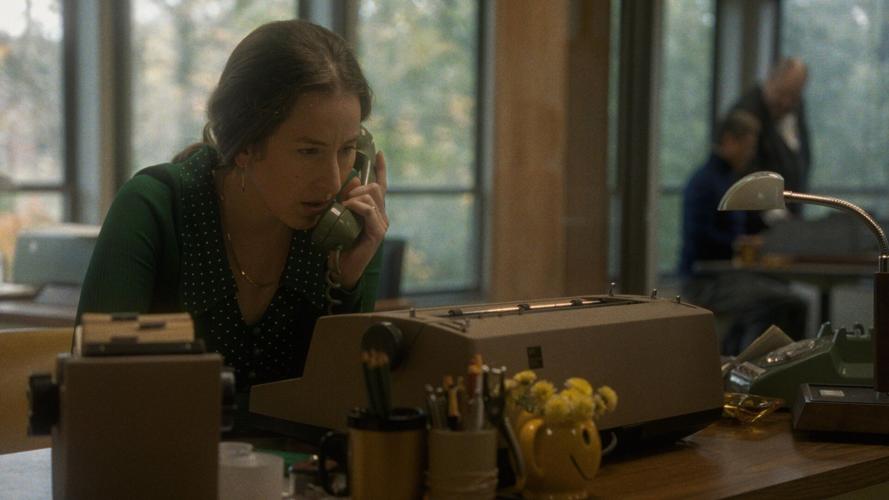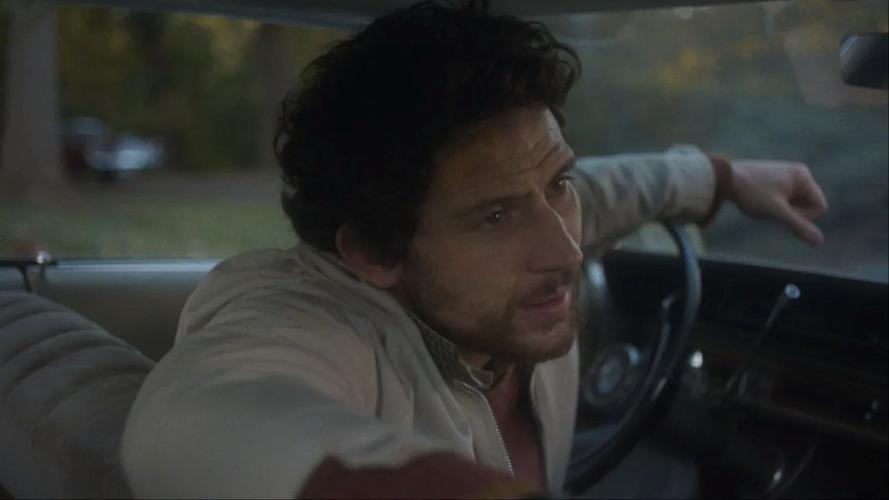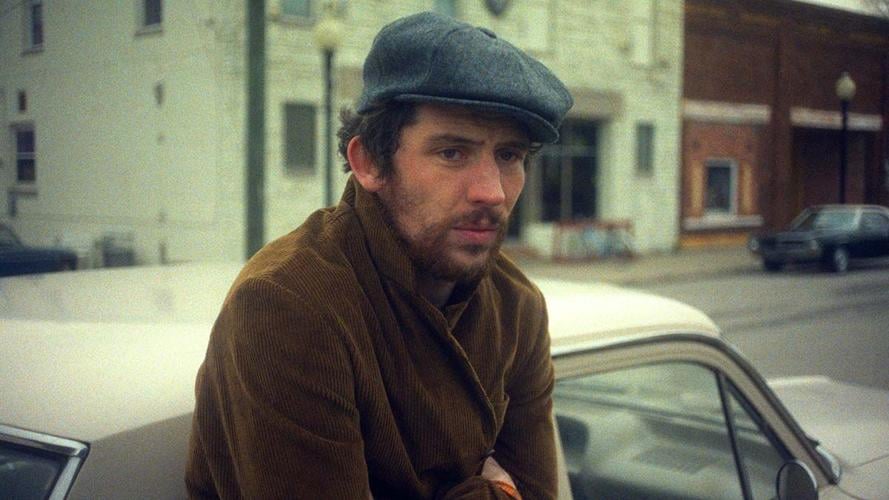The title is perhaps meant to be ironic. The title suggests a very smart person who creates a scheme or a plan for committing a crime that is brilliant and well thought-out. The irony is that the titular character isn't very smart or that brilliant. The scheme or plan he concocts isn't that well thought-out. He makes mistakes, serious mistakes and critical ones. He even makes dumb choices. He's putting together a heist, but if one compares what happens here, it's much dumber than Ocean's Eleven (2001), but it's almost meant to be dumber. Writer-director Kelly Reichardt is showing the hubris of her protagonist, as well as his ennui. His arrogance and privilege are his undoing. It's interesting to contrast this film with the recent Roofman (2025) by Derek Cianfrance. Roofman is also about a man, played by Channing Tatum, who commits a heist and then has to deal with the consequences or aftermath of his crime with not a lot of help or with walls that slowly close around him. Ironically, the character in Cianfrance's film has a lot more help than Reichardt's protagonist, despite Cianfrance's character being a literal escaped prisoner.
Josh O'Connor (Challengers and The Crown) stars as James Blaine Mooney, or JB, a man living in Framingham, Massachusetts, a suburb of Boston. It's 1970. He's a husband and father of several children. However, he is presently not working. He's unemployed. His wife has a job and is the breadwinner, currently supporting the family. Yet, JB doesn't seem to be actively looking for work. He seems to spend most of his time and his days visiting the Framingham Museum of Art. Sometimes, he goes with his wife and kids, but he spends hours at the museum. He's a former art school student who loves the paintings on display. He loves them so much that his ulterior motive for visiting the museum is plotting to steal some of those paintings. He quietly plans an art heist. It's not that difficult, given that the security is almost comical and practically non-existent.

Alana Haim (One Battle After Another and Licorice Pizza) co-stars as Terri Mooney, the wife of JB. She's not given much to do, except be the breadwinner. She's not involved as much as she could have been. She's certainly not given as much as Kirsten Dunst in Roofman. Arguably, Haim's character is akin to Melonie Diaz's character in Roofman. Diaz played the mother to the kids of Tatum's character. Unlike Tatum's character, O'Connor's JB doesn't have a romance with a woman once he goes on the run from the law. Both Reichardt and Cianfrance spend a significant amount of time following their protagonists on the run from the law. Both have a comedic aspect to them. Cianfrance leans more on the broader humor, whereas Reichardt is very subtle in her humor.
The differences in humor between Cianfrance and Reichardt is one of sympathy. It's clear that Cianfrance wants you to sympathize with his main character. Cianfrance wants you to be on the side of his main character and possibly even root for his main character. Reichardt's position is almost the opposite. She doesn't want you to be on the side of her protagonist. She doesn't want you to root for him. Even though both characters end up in the exact same spot, but Cianfrance is cheering his criminal and Reichardt is critical of hers and is almost shaming him. There is a moment when she's also shaming the police, but ultimately, she's mocking JB. Even though Tatum's character is supposed to be not as smart and his choices get him caught, JB is meant to be smarter, yet circumstances get him caught.

There are moments when JB makes dumb mistakes or does things that makes it clear that he's not as smart as he thinks he is. This again goes to the title being an ironic one. After a point, the film becomes just watching action. JB stops speaking. O'Connor is given little to no dialogue. There's one moment when JB visits his college friend, Fred, played by John Magaro who has been in several of Reichardt's films. JB gets questioned to some degree, but still doesn't reveal much. Because there's so little revealed and so little dialogue, it's hard to understand why JB did what he did. A lot of motivations could be implied, but it feels like a vague sketch of a character.
The vagueness could be excused, if there was a little bit more of a thrill in the aftermath and being on the run. The whole point of Roofman is the aftermath and being on the run, mostly because him being on the run was a very interesting and unique or distinct story. Once JB goes on the run, it's not very interesting or unique. There's no real thrill to him being on the run. His escape is almost too easy, which makes it boring. The only time it isn't boring is at the end right before he gets caught, but, at that point a lot of time is wasted on camera shots that feel like it's padding the runtime rather than enriching it. Reichardt does a camera spin in full 360-degrees, and there's no real point to it. There are some long continuous shots that have a point or a button that make them interesting. The pacing isn't bad though.

It's simply that I don't feel there's much insight or introspection into JB. I don't feel like we get any explanation for his reason for committing the art heist. It's not clear what is driving him. It could be one of those films where that kind of thing is a mystery or his motives might not matter. It could also be that Reichardt simply wanted to portray a man who does all of this for nothing, which is fine. It simply makes the whole thing feel like a rather hollow experience, devoid of much emotion, which is what O'Connor's performance is, devoid of much emotion after a point.
Rated R for language.
Running Time: 1 hr. and 50 mins.
In theaters.









